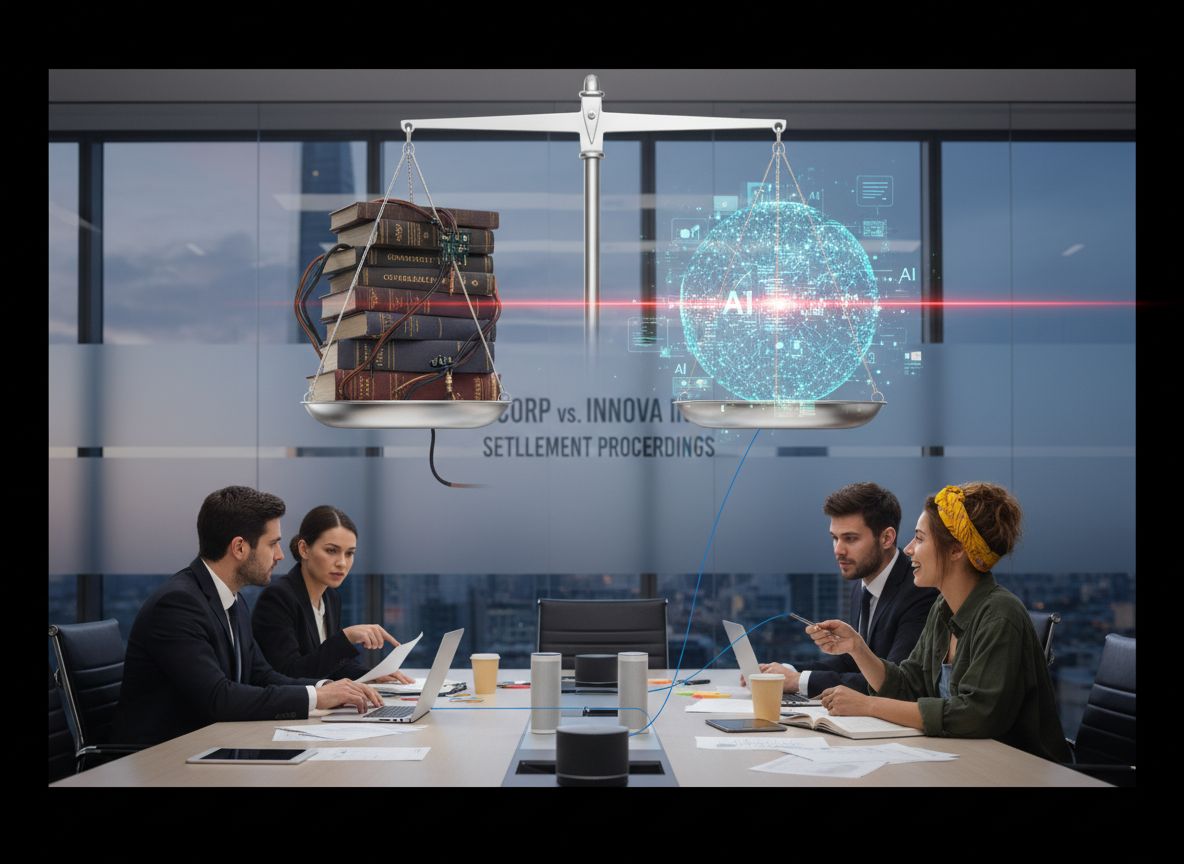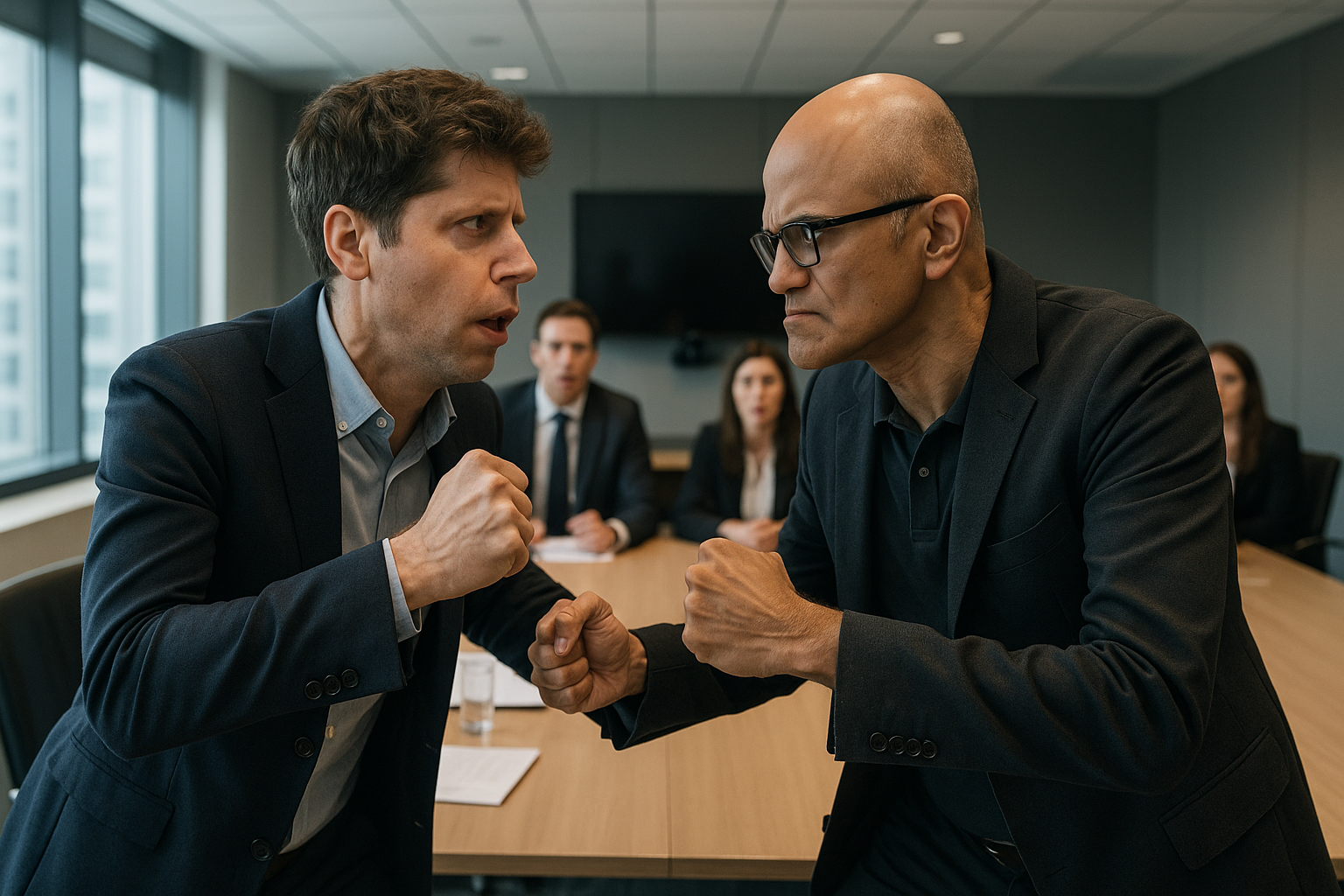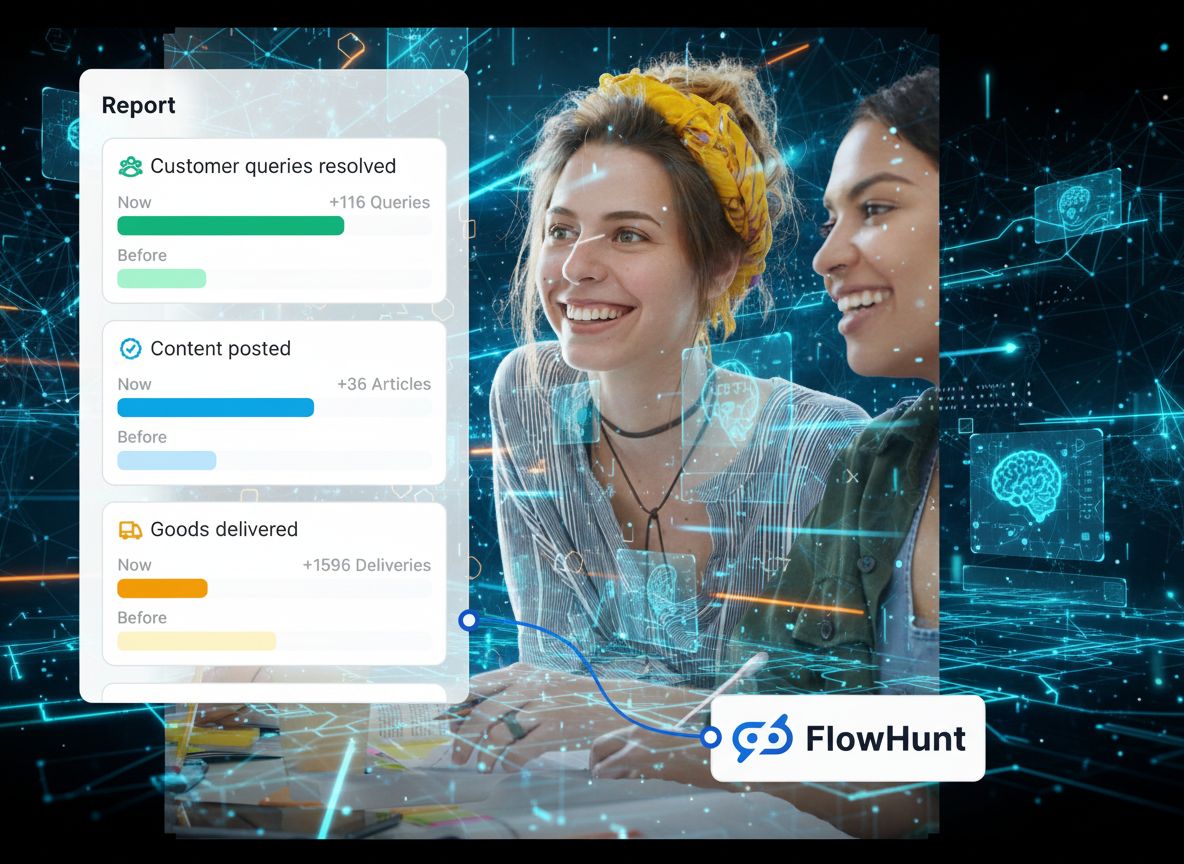
Anthropic's $1.5 Billion Copyright Settlement Changes AI Forever
Explore the landmark $1.5 billion copyright settlement against Anthropic, its implications for AI training practices, and how this shapes the future of the enti...

The AGI clause in OpenAI’s contract with Microsoft has become a major point of contention as OpenAI seeks to restructure as a public-benefit corporation, potentially reshaping the future of AI development.
The most influential partnership in artificial intelligence is facing its biggest test yet. OpenAI and Microsoft, whose collaboration has defined the AI landscape for the past six years, are locked in a high-stakes battle over a single contract provision that could determine the future of artificial general intelligence (AGI) development.
At the center of this dispute is the “AGI clause” – a seemingly prescient provision in their 2019 agreement that restricts Microsoft’s access to OpenAI’s technology once AGI is achieved. What once seemed like a distant hypothetical scenario has now become a very real point of contention as both companies grapple with the implications of increasingly powerful AI systems.
The AGI clause in the OpenAI-Microsoft partnership agreement represents one of the most forward-thinking provisions in tech contract history. Included in their 2019 deal, this clause stipulates that if OpenAI’s board declares it has achieved AGI – defined as AI systems that surpass human capabilities in most economically valuable tasks – Microsoft’s contracted access to OpenAI’s future technologies would be significantly restricted.
This provision wasn’t just legal boilerplate; it was a philosophical statement about the nature of AGI and who should control it. The clause reflects OpenAI’s original mission to ensure that artificial general intelligence benefits all of humanity, rather than being monopolized by a single corporation, regardless of how much that corporation has invested.
The key language of the AGI clause reads:
If OpenAI's board of directors determines that OpenAI has achieved
Artificial General Intelligence (AGI), defined as AI systems that
surpass human capabilities in most economically valuable tasks,
then Microsoft's contracted access to OpenAI's future technologies
shall be restricted to ensure AGI benefits all of humanity.
Microsoft’s desire to remove or modify the AGI clause reveals the tech giant’s strategic concerns about its massive investment in OpenAI. Having poured billions into the partnership and integrated OpenAI’s technology deeply into its product ecosystem – from Copilot to Azure AI services – Microsoft faces the prospect of being cut off from future innovations just when they might become most valuable.
The company’s position likely stems from several factors:
Investment Protection: Microsoft has invested over $13 billion in OpenAI and needs to ensure continued access to justify this massive commitment to shareholders.
Competitive Advantage: Access to cutting-edge AI technology has become crucial for Microsoft’s competitive position against Google, Amazon, and other tech giants.
AGI Timeline Skepticism: Microsoft may not believe AGI is as imminent as OpenAI suggests, viewing the clause as an unnecessary restriction on a hypothetical scenario.
Market Control: Maintaining access to OpenAI’s technology is essential for Microsoft’s AI strategy across its entire product portfolio.
OpenAI’s reluctance to remove the AGI clause reflects deeper questions about the company’s identity and mission. Despite its transformation from a non-profit research organization to a capped-profit entity, OpenAI has maintained its commitment to ensuring AGI benefits humanity broadly.
The company’s resistance to Microsoft’s demands suggests several motivations:
Mission Alignment: The AGI clause aligns with OpenAI’s stated mission to ensure AGI benefits all of humanity, not just Microsoft’s shareholders.
Leverage Preservation: Maintaining the clause gives OpenAI significant leverage in future negotiations and strategic decisions.
AGI Confidence: OpenAI’s resistance may indicate the company believes AGI is closer than many realize, making the clause more than just theoretical.
Independence Assertion: Refusing to bend to Microsoft’s demands demonstrates OpenAI’s desire to maintain strategic independence.
The AGI clause dispute has become entangled with OpenAI’s plans to restructure as a public-benefit corporation – a move crucial for the company’s ability to raise additional capital and eventually go public. Microsoft’s approval is essential for this restructuring, giving the tech giant significant leverage in negotiations.
This restructuring is more than just a corporate formality. It represents OpenAI’s attempt to balance its mission-driven origins with the practical need to raise capital in an increasingly expensive AI development landscape. The public-benefit corporation structure would allow OpenAI to consider stakeholder interests beyond just profit maximization, potentially making the AGI clause more defensible.
However, Microsoft’s resistance to the AGI clause is complicating these plans, creating a complex negotiation where corporate restructuring, future technology access, and philosophical questions about AGI governance are all intertwined.
Perhaps most dramatically, OpenAI executives have reportedly discussed what they view as a “nuclear option” – accusing Microsoft of anticompetitive behavior and seeking federal regulatory review of their partnership terms. This potential escalation highlights just how high the stakes have become.
Such a move would represent a dramatic escalation that could:
Trigger Regulatory Scrutiny: Federal antitrust investigations could reshape the entire AI industry landscape.
End the Partnership: Public accusations of anticompetitive behavior would likely make continued collaboration impossible.
Set Legal Precedents: The case could establish important precedents for AI governance and corporate partnerships.
Impact Industry Dynamics: Other AI partnerships and investments could be affected by the regulatory and legal outcomes.
At the heart of this dispute lies a fundamental question: what exactly constitutes AGI? The contract defines it as AI systems that surpass human capabilities in most economically valuable tasks, but this definition leaves significant room for interpretation.
The challenge of defining AGI isn’t just academic – it’s a practical problem that could determine when the clause takes effect. Different interpretations could lead to vastly different outcomes:
Narrow Definition: A restrictive interpretation might require AI systems to exceed human performance across virtually all cognitive tasks.
Broad Definition: A more inclusive definition might trigger the clause based on performance in specific high-value domains.
Gradual vs. Sudden: The question of whether AGI represents a sudden breakthrough or gradual progression affects when the clause might activate.
Measurement Challenges: Determining “most economically valuable tasks” requires complex assessments of economic impact and human capability.
The resolution of this dispute will have far-reaching implications for the AI industry and the development of AGI. Several scenarios could emerge:
Microsoft Capitulation: If Microsoft agrees to maintain the clause, it could set a precedent for mission-driven AI development over pure commercial interests.
Clause Modification: A compromise might involve modifying the clause to provide Microsoft with some continued access while preserving OpenAI’s mission.
Partnership Dissolution: If negotiations fail, the end of the OpenAI-Microsoft partnership could reshape the entire AI landscape.
Regulatory Intervention: Government involvement could establish new frameworks for AI governance and corporate partnerships.
This dispute reflects broader questions about AI governance that the industry will increasingly face as AI systems become more powerful. The AGI clause represents an early attempt to address questions that will become more pressing as AI capabilities advance:
Corporate vs. Public Interest: How do we balance commercial incentives with broader societal benefits?
Control and Access: Who should have access to the most advanced AI systems, and under what conditions?
Transition Management: How do we manage the transition from current AI systems to AGI?
International Implications: How do domestic partnerships and regulations affect global AI development and competition?
The OpenAI-Microsoft AGI clause dispute represents more than just a contract negotiation – it’s a defining moment for the AI industry. The outcome will influence how future AI partnerships are structured, how AGI development is governed, and whether mission-driven considerations can coexist with commercial imperatives.
As both companies navigate this complex dispute, the broader AI community is watching closely. The resolution could establish important precedents for AI governance, corporate responsibility, and the balance between innovation and societal benefit.
Whether this dispute ends in compromise, dissolution, or regulatory intervention, it marks a crucial inflection point in the development of artificial intelligence. The AGI clause, once a theoretical safeguard, has become a very real test of how the AI industry will handle the transition to more advanced AI systems.
The stakes couldn’t be higher – not just for OpenAI and Microsoft, but for the future of artificial intelligence itself. How this dispute resolves may well determine whether AGI development remains concentrated in the hands of a few tech giants or evolves into a more distributed and mission-driven endeavor.
As we stand on the brink of potentially transformative AI capabilities, the OpenAI-Microsoft AGI clause controversy serves as a crucial reminder that the governance structures we establish today will shape the AI landscape for decades to come.
The AGI clause is a provision in OpenAI and Microsoft's 2019 agreement that restricts Microsoft's access to OpenAI's future technologies if OpenAI's board declares it has achieved Artificial General Intelligence (AGI). This clause was designed to ensure AGI benefits humanity rather than being controlled by a single corporation.
Microsoft wants to remove or modify the AGI clause to ensure continued access to OpenAI's future technologies. The company may not believe AGI is imminent or wants to protect its substantial investment in OpenAI from potential access restrictions.
OpenAI needs Microsoft's approval to restructure as a public-benefit corporation, which is crucial for attracting further investment and going public. The AGI clause dispute is complicating these negotiations and could impact OpenAI's ability to raise more capital.
If negotiations fail, Microsoft might walk away from the partnership, or OpenAI could declare 'sufficient AGI' to limit Microsoft's access. Both scenarios would significantly impact the AI industry and could trigger regulatory scrutiny or antitrust investigations.
According to the contract, AGI refers to AI systems that surpass human capabilities in most economically valuable tasks. However, the exact definition and criteria for determining when AGI is achieved remain contentious points between the two companies.
Yasha is a talented software developer specializing in Python, Java, and machine learning. Yasha writes technical articles on AI, prompt engineering, and chatbot development.

While tech giants battle over AGI, you can start building powerful AI workflows today with FlowHunt's enterprise-grade platform.

Explore the landmark $1.5 billion copyright settlement against Anthropic, its implications for AI training practices, and how this shapes the future of the enti...

OpenAI launches $10M minimum AI consultancy services, copying Palantir's Forward Deployed Engineer strategy. Learn how AI audit processes and premium AI platfor...

Explore Andrej Karpathy's nuanced perspective on AGI timelines, AI agents, and why the next decade will be critical for artificial intelligence development. Und...